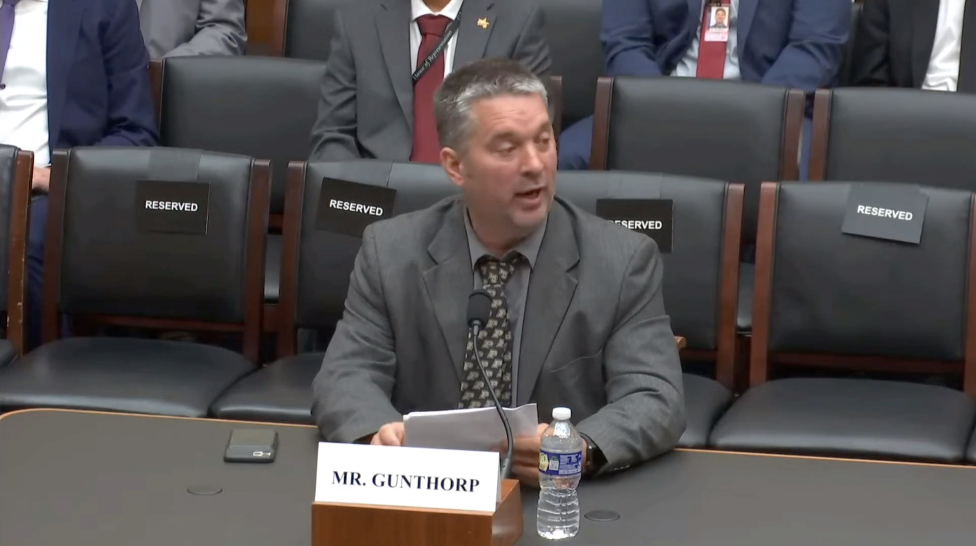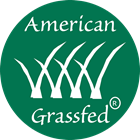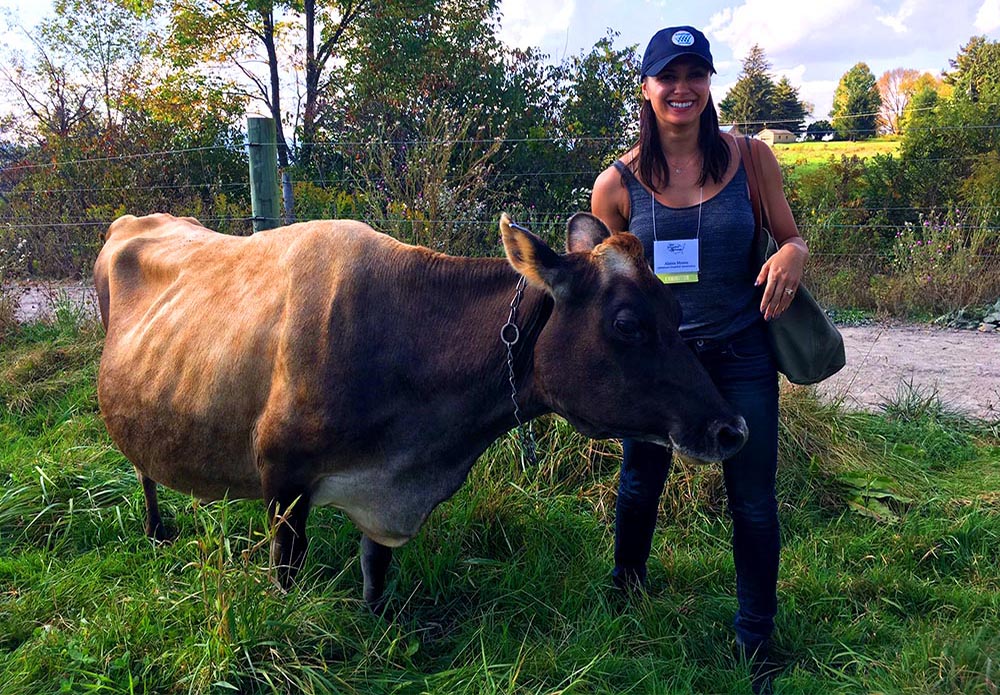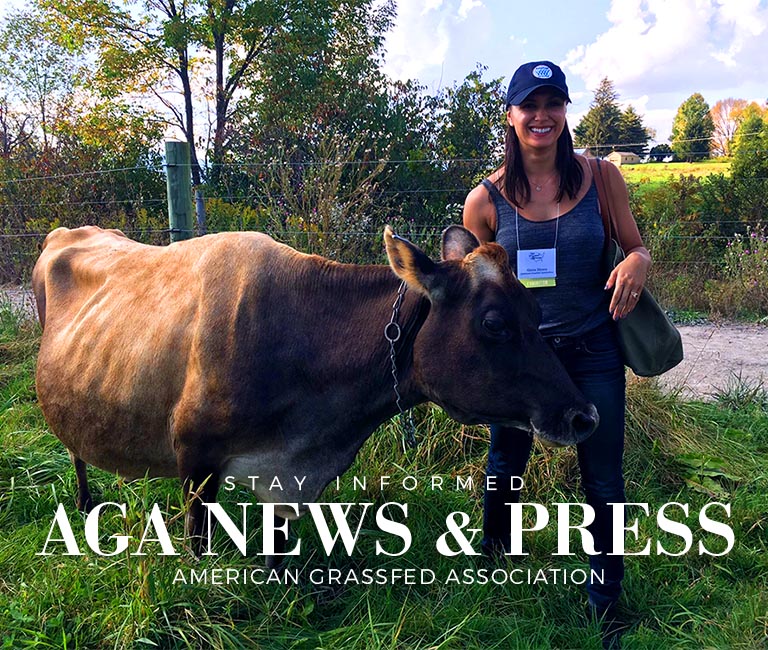-
Farm Organizations Announce National “Enough Is Enough Tour”

Media Contacts:
Marty Irby, Alabama Contract Poultry Growers Association, marty@martyirby.com, 202-821-5686Carrie Balkcom, American Grassfed Association, aga@americangrassfed.org, 303-591-3978
Dave Hyde, Buckeye Quality Beef Association, dhydefarm@windstream.net, 740-381-2699
Sean Arithson, Dakota Resource Council, sean@drcinfo.com, 701-202-3488
Angela Huffman, Farm Action and Farm Action Fund, ahuffman@farmactionfund.us, 614-390-7552
Dr. JohnElla Holmes Reece, Kansas Black Farmers Association, johnella.h@kbfa.org, 785-236-9014
Tommy Enright, Wisconsin Farmers Union, tenright@wiscosninfarmersunion.com, 715-563-2169
Farm Organizations Announce National “Enough Is Enough Tour”
Farmers and ranchers across the U.S. will gather to call for an end to government policies that favor the largest food industry giants
WASHINGTON, D.C. — Today, 16 farm organizations announced the launch of the national Enough Is Enough Tour in protest of government policies that drive consolidation of the food system into the hands of the largest multinational corporations to the detriment of farmers and ranchers.
With Congress preparing to debate the farm bill during prime planting and calving season, restricting farmers’ and ranchers’ ability to bring their voices to Washington D.C., farm groups will gather at events in at least five states to call on members of Congress to deliver a bill that levels the playing field.
A major focus of the tour is to highlight corruption in government checkoff programs, which compel farmers and ranchers to contribute a staggering one billion dollars annually and which have been co-opted by corporate interests. Checkoff dollars are often funneled to lobbying organizations that represent the world’s largest meatpackers and grain traders, which then work against the interests of the very farmers and ranchers mandated to pay into the programs.
Enough Is Enough Tour events will take place across the country, hosted by grassroots and national organizations representing the interests of our nation’s food producers:
- May 14 | Clearwater, MN | Hosted by American Grassfed Association and Thousand Hills Farm
- May 22 | Osseo, WI | Hosted by Wisconsin Farmers Union
- May 24 | Nicodemus, KS | Hosted by Kansas Black Farmers Association
- May 29 | Columbiana, OH | Hosted by Buckeye Quality Beef Association, Ohio Farmers Union, and Pennsylvania Farmers Union
- May 31 | Guntersville, AL | Hosted by Alabama Contract Poultry Growers Association, Competitive Markets Action, and the Organization for Competitive Markets
- June 4 | Bismarck, ND | Hosted by Dakota Resource Council
“The Enough Is Enough Tour is a unified platform for farmers and ranchers to voice the disastrous impacts of the current system on their lives and livelihoods, and to demand reforms that bring prosperity and fair competition to agriculture,” said Angela Huffman, Vice President of Farm Action Fund, sponsor and organizer of the tour. “Change begins by putting the brakes on the government’s billion-dollar gravy train known as checkoff programs by passing the Opportunities for Fairness in Farming Act.”“The Enough Is Enough Tour provides a crucial platform to educate our stakeholders about injustices faced by BIPOC farmers,” said Dr. JohnElla Holmes Reece, Executive Director of Kansas Black Farmers Association. “Addressing misuse of funds in government checkoff programs serves as a pivotal step toward advocacy and change, empowering our community to pave the way for a fairer agricultural landscape.”
“In our pursuit of a fair agricultural landscape, it’s time to acknowledge that the current system disproportionately favors corporate giants over family-scale farms,” said
Darin Von Ruden, President of Wisconsin Farmers Union. “The Enough Is Enough Tour is advocating for policies that level the playing field and work toward a viable future for all farmers and ranchers.”“The Enough is Enough Tour is an opportunity for cattlemen and women to listen to what the checkoff has really done to the American cattle industry and what solutions are proposed to correct the 30+ year fleecing of cattle tax paying ranchers,” said Dave Hyde of the Buckeye Quality Beef Association.
“As a proud American and lifelong producer, I’m elated to see our members rally in support of putting the checkoff programs back on track and call on the Alabama Congressional Delegation to back to the OFF Act and end the rampant corruption within these swampy slush funds,” said Jonathan Buttram, President of the Alabama Contract Poultry Growers Association and
Treasurer at the Organization for Competitive Markets. “The industrial agriculture mafia is petrified of our work and the OFF Act because they see the writing on the wall and we hope they soon meet the same fate as New York’s infamous ‘Five Families.’”
The Enough Is Enough Tour is endorsed by: Alabama Contract Poultry Growers Association, American Grassfed Association, Buckeye Quality Beef Association, Competitive Markets Action, Dakota Resource Council, Farm Action, Farm Action Fund, Independent Cattlemen of Wyoming, Kansas Black Farmers Association, Montana Cattlemen’s Association, Ohio Farmers Union, Organization for Competitive Markets, Pennsylvania Farmers Union, R-CALF USA, Western Organization of Resource Councils, and Wisconsin Farmers Union.
###
Alabama Contract Poultry Growers Association (ALCPGA) is a group of independent poultry producers that have come together to find ways of making our industry stronger, more efficient, and more economical. They have implemented an LP Gas program to lower the cost of gas that each producer purchases. This enables the producer to save on their heating bill, and still produce healthy poultry.
American Grassfed Association communicates the value of grassfed products to consumers, chefs, and the media and serves as a resource for information. We also advocate and work to make positive change in policies for pasture-based producers.
Buckeye Quality Beef Association is an Ohio-based cattle organization fighting for the independent cattle producer. The main focus is promoting USA labeled beef, strengthening and increasing competitive markets, and exposing the truths about the National Beef Checkoff and Ohio Beef Marketing programs.
Competitive Markets Action (CMA) is a 501(c)(4) non-profit based in Washington, D.C., that was formed with the mission of shaping policy to promote more regenerative and sustainable agriculture, and competitive markets in the U.S., and to defend against attacks on states’ rights by the federal government. CMA works to raise awareness of the harm caused by multinational conglomerates to the American family farmer, the consumer and our U.S. economy as a whole in an effort to bring about legislative and regulatory reforms.
Dakota Resource Council’s mission is to promote sustainable use of North Dakota’s natural resources and family-owned and operated agriculture by building member-led local groups that empower people to influence the decision-making processes that affect their lives and communities.
Farm Action and Farm Action Fund are farmer-led organizations fighting corporate monopolies in agriculture. We envision a fair, sustainable, and healthy food system that empowers farmers, ranchers, and rural communities to feed their neighbors.
The Kansas Black Farmers Association, Inc. (KBFA) is dedicated to promoting the economic and social well-being of black farmers and agricultural communities in Kansas and beyond.
Through advocacy, education, and empowerment initiatives, KBFA strives to address systemic disparities and foster sustainable agricultural practices.
The Organization for Competitive Markets (OCM) is a 501(c)(3) non-profit based in Lincoln, Nebraska. The foundation of the Organization for Competitive Markets is to fight for competitive markets in agriculture for farmers, ranchers and rural communities. True competition reduces the need for economic regulation. Our mission, and our duty, is to define and advocate the proper role of government in the agricultural economy as a regulator and enforcer of rules necessary for markets that are fair, honest, accessible and competitive for all citizens.
-
REBUILDING LOCAL FOOD SYSTEMS: INDIANA FARMER GREG GUNTHORP STANDS UP FOR RURAL AMERICA IN HOUSE JUDICIARY SUBCOMMITTEE HEARING

LaGrange, Indiana – June 22, 2023
The American Grassfed Association (AGA), a national organization that safeguards and promotes grassfed producers and grassfed products, proudly reports the testimony of Greg Gunthorp, an Indiana resident, owner of Gunthorp Farms, and AGA board member. Gunthorp testified at the House Judiciary Subcommittee on the Administrative State, Regulatory Reform, and Antitrust hearing on June 13, 2023.
In his compelling address, Gunthorp raised essential points about the challenges and opportunities for small and medium-sized farms in rural America. He also shed light on the stringent government regulations affecting the growth of the meat processing industry.
“We need subsidy reform, antitrust enforcement, truth in labels, and inspection reform if we are to rebuild local and regional food systems,” Gunthorp stressed. “We need a new game, where everyone has a chance for success, including the smaller scrappy players who are willing to put their time and energy into it.”
Gunthorp’s testimony highlighted the importance of addressing USDA inspection issues and promoting fair market access as vital steps towards revitalizing local and regional food systems. He suggested reforms such as redefining establishment sizes, establishing an ombudsman to address USDA dysfunction, ensuring complete rulemaking processes before enforcement, expanding inspection programs, restoring truth in labeling, prioritizing local/regional suppliers in USDA procurement, addressing agency revolving door and ethics issues, and enforcing strict antitrust regulations.
Gunthorp Farms, a shining example of local, high-quality, sustainable farming, is a pasture-based livestock and poultry farm with on-site USDA inspected slaughter and processing operations. Supplying premium products to high-profile clients like O’Hare Airport, Wrigley Clubhouse, and Disney, Gunthorp Farms is a testament to the potential success and influence of small, local farms.
The AGA stands with Gunthorp in advocating for policy reform that enables the growth and competitiveness of small and medium-sized enterprises in meat processing. We believe that reducing regulatory barriers will invigorate rural economies, promote sustainable farming, and offer consumers more choices in the marketplace.
The AGA is committed to being a voice for independent farmers and to keeping rural America alive and thriving. We support and uphold the benefits of grassfed farming on domestic economies, rural communities, and the environment.
Gunthorp’s testimony serves as a reminder of the significant role that independent farmers and ranchers play in our food systems and the communities they nourish. The AGA is proud to be a part of this crucial conversation and will continue to work towards a future where the regulatory environment favors local, sustainable agriculture.
About the American Grassfed Association:
The American Grassfed Association is a national organization that provides certification, market support, education, research, and advocacy on behalf of grassfed producers and stakeholders. We promote the grassfed community through government relations, research, concept marketing, and public education. We stand in solidarity with Gunthorp Farms and other independent farmers who strive to provide food that tastes better, promotes health, rebuilds soil and communities, and offers more opportunities for all.
Learn more about AGA at https://www.americangrassfed.org/
Learn more about Gunthorp Farms at https://gunthorpfarms.com/
See the full testimony at https://www.instagram.com/reel/Cti9AG2PHIo/?igshid=MTc4MmM1YmI2Ng%3D%3D


